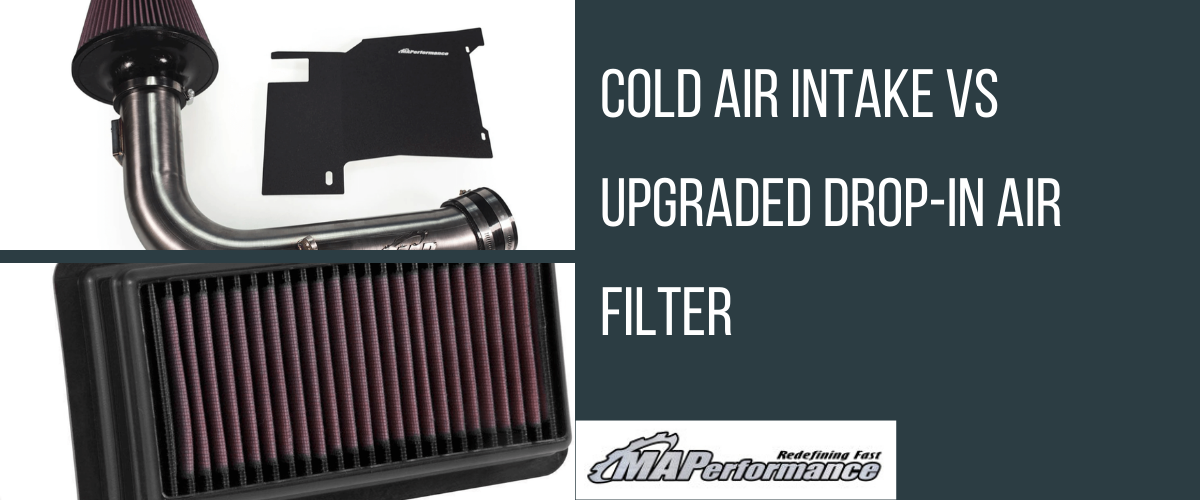As an Amazon Associate, I earn from qualifying purchases at no extra cost to you.
Pros And Cons of K&N Drop-In Filter Versus Stock Air Filter?
The K&N Drop-In Filter can improve air flow efficiency but may require maintenance, while stock filters offer ease of use. Choosing between a K&N Drop-In Filter and a stock air filter involves considering factors like performance, maintenance, cost, and long-term benefits.
Both options have their own set of advantages and disadvantages that car owners should weigh carefully before making a decision. We will delve into the pros and cons of each type of air filter to help you make an informed choice for your vehicle.

Credit: www.reddit.com
2. Advantages Of K&n Drop-in Filter
2. Advantages of K&N Drop-In Filter
2.1 Higher Airflow
K&N Drop-In Filters are designed to provide higher airflow compared to stock air filters. This means that more air can flow into the engine, resulting in improved performance and fuel efficiency.
2.2 Improved Horsepower And Torque
Using a K&N Drop-In Filter can lead to improved horsepower and torque by allowing the engine to breathe easier. This leads to better acceleration and overall power.
2.3 Reusable And Washable
One of the key advantages of K&N Drop-In Filters is that they are reusable and washable. This not only saves money in the long run but also reduces environmental impact by cutting down on disposable filter waste.
2.4 Longer Lifespan
K&N Drop-In Filters typically have a longer lifespan than stock air filters. This means less frequent replacements and maintenance, which can be beneficial for both your wallet and the environment.
2.5 Easy Installation
K&N Drop-In Filters are designed for easy installation, typically requiring no special tools or modifications. This makes upgrading to a K&N filter a hassle-free process for most vehicle owners.

Credit: m.youtube.com
3. Disadvantages Of K&n Drop-in Filter
When considering the use of a K&N drop-in filter over the stock air filter, it is important to weigh the advantages and disadvantages. While there are benefits to using a K&N filter, there are also potential drawbacks that need to be taken into account. In this section, we will explore the disadvantages of opting for a K&N drop-in filter.
3.1 Initial Cost
Despite superior performance, K&N drop-in filters may require a higher initial investment compared to stock filters.
3.2 Oil Contamination
Over time, the oil used in K&N filters may contaminate the mass airflow sensor, leading to potential issues.
3.3 Reduced Filtration Efficiency
K&N filters may offer improved airflow but at the cost of slightly reduced filtration efficiency compared to stock filters.
5. Advantages Of Stock Air Filter
The stock air filter offers several advantages over the K&N drop-in filter, including better filtration and lower maintenance. It provides optimal air flow, ensuring smooth engine performance and increased fuel efficiency.
5.1 Effective Filtration
The stock air filter provides efficient filtration of air, capturing dust and debris effectively.
5.2 No Oil Contamination
With the stock air filter, there is no risk of oil contamination in the engine system.
5.3 Less Expensive
It is a budget-friendly option that helps you save on maintenance costs.
6. Disadvantages Of Stock Air Filter
When compared to a K&N drop-in filter, the stock air filter has several drawbacks that can impact the performance of your vehicle. Let’s explore these disadvantages in detail:
6.1 Reduced Airflow
The stock air filter restricts the airflow into the engine, which can limit its efficiency and power output. The reduced airflow can result in inadequate combustion and lower fuel efficiency.
6.2 Limited Performance Gains
With a stock air filter, you may experience limited performance gains compared to a K&N drop-in filter. The design and material of the stock filter may not be optimized for maximizing the engine’s power potential.
6.3 Not Reusable
Unlike a K&N drop-in filter, the stock air filter is not reusable. This means that it needs to be replaced at regular intervals, leading to ongoing costs over time. Additionally, the non-reusability of the stock filter has a negative environmental impact due to the disposal of used filters.

Credit: www.maperformance.com
Conclusion
Choosing between a K&N drop-in filter and a stock air filter depends on your priorities. The K&N filter offers better airflow and potential performance gains, while the stock filter provides better filtration and protection for your engine. Consider your driving habits and maintenance preferences to make an informed decision.


